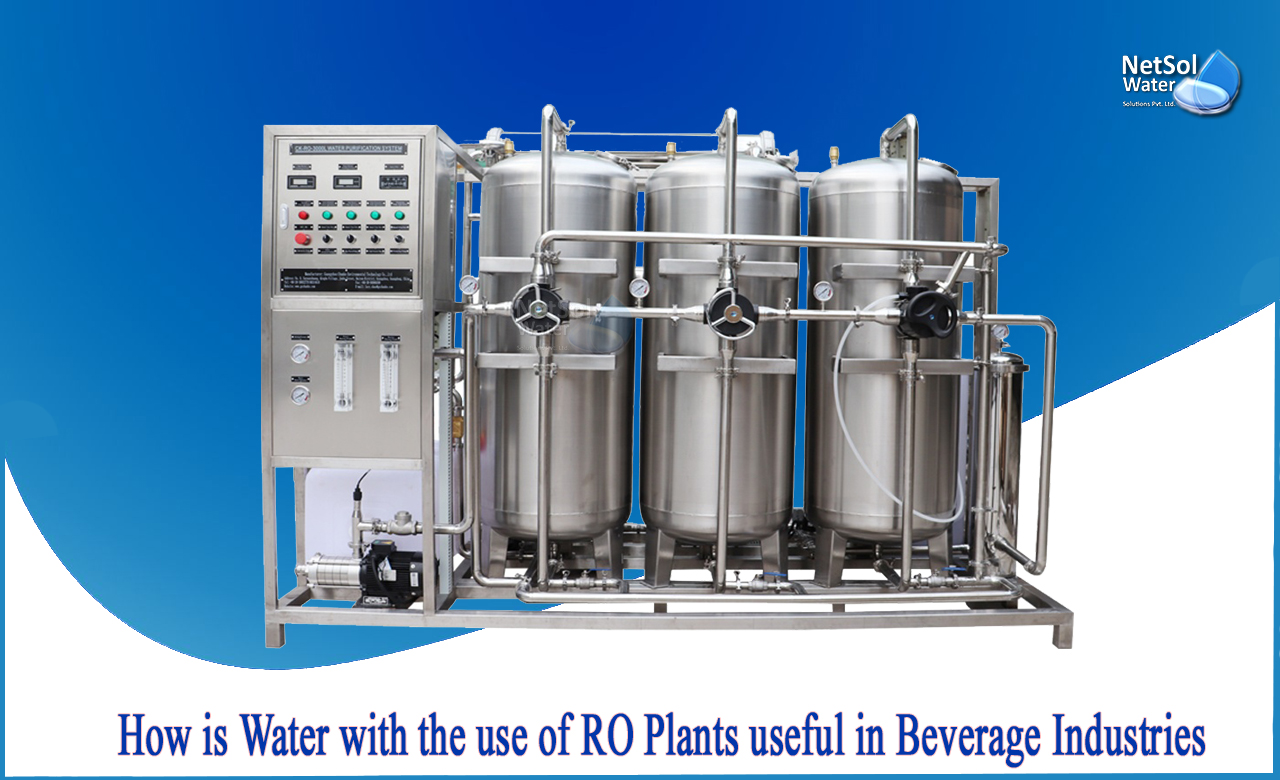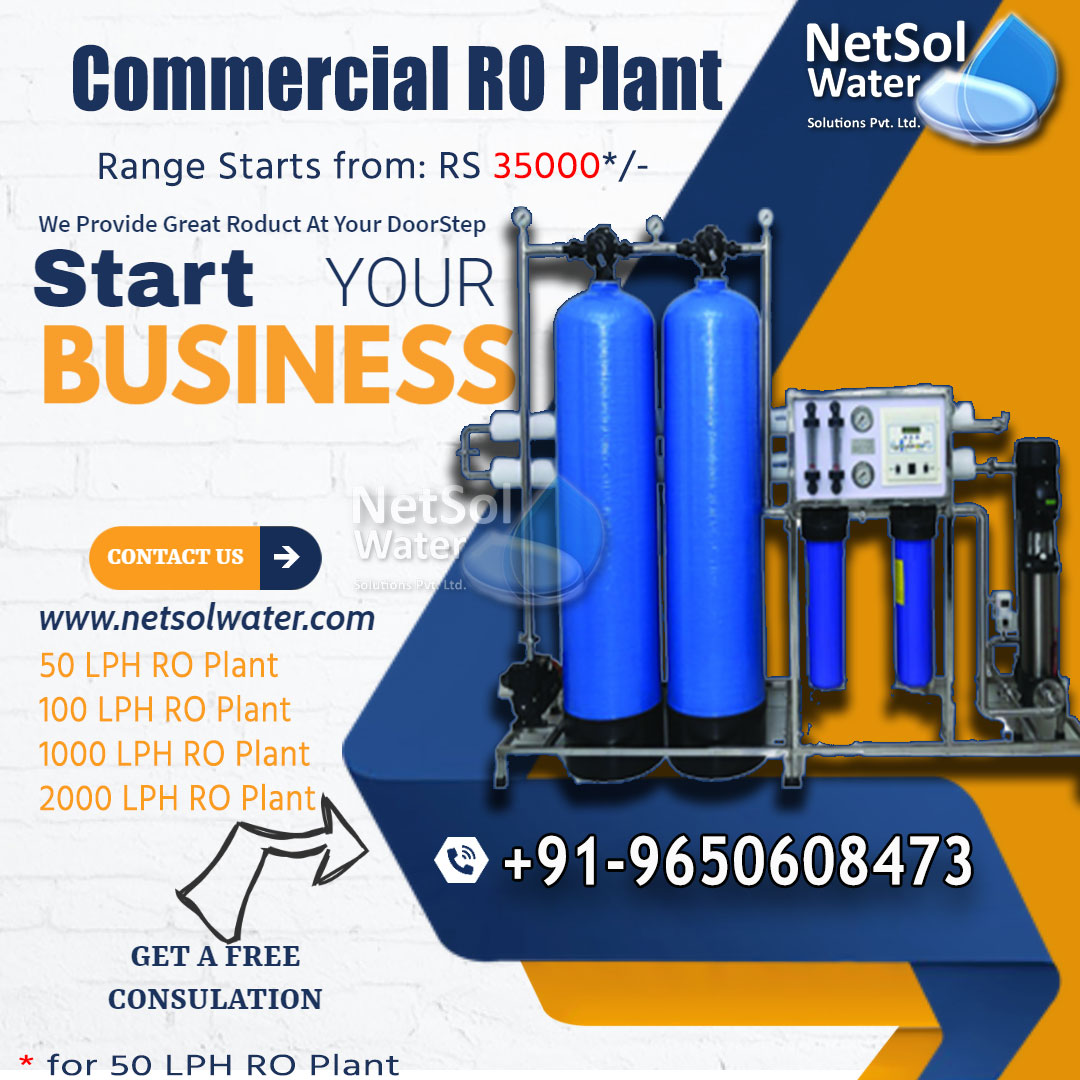How is water with the use of RO plants useful in beverage industries?
Water is extremely important in the food and beverage sector. It's used in multiple elements of daily operations, from cleaning raw materials to incorporating recipes.The fact that city water is pure and safe to drink is overlooked by many plants. Water quality must be monitored and contaminant levels determined before usage. To ensure that the production process is not hampered by poor water quality, it must be properly treated before it can be put to use. To meet provincial and national discharge rules, all water leaving the facility after it has been used must be treated.
Processes used for beverage water treatment
1: Reverse osmosis:It is a very effective technology for lowering the concentration of solutes in the beverage water to be treated. By applying pressure to the concentrate side of a semi-permeable membrane, the natural osmosis process is reversed. Water can travel through the membrane while practically all of its contents are maintained. Reverse osmosis systems for beverage water purification can be run very cost-effectively and with a high efficiency of up to 95%.
2: Adsorption: Water is filtered via particular adsorber materials to remove undesired elements such as arsenic, uranium, iron, manganese, and hydrogen sulphide from the water to be treated. For successful treatment, a custom-made design for the raw water composition is required.
3: Ultrafiltration: The high-efficiency membranes' ultra-small holes retain even the tiniest particles in the water. Bacteria and even viruses are preserved with a pore size of around 0.02 m. As a result, this beverage water purification method generates a strong microbial barrier. To reduce the fouling potential caused by organic deposits, ultrafiltration is an excellent pre-treatment for subsequent reverse osmosis.
4: Activated carbon filtration: Activated carbon filtration is used in beverage water treatment for de-chlorination and the removal of foreign taste, smells, and discoloration.
5: Disinfection: Various treatment procedures are employed to disinfect beverage water, depending on the specific use. The use of chlorine dioxide for disinfection is a very effective and efficient procedure. However, when it comes to protecting treated drinking water until it is bottled and sealed, the use of slightly more expensive ozonization may be advantageous.
Irradiation with UV light is another disinfection approach, although it has no lasting impact in the water. This technique is frequently employed in-line in the beverage industry, such as the final processing step for non-alcoholic, carbonated soft drinks.
6: UV treatment: UV irradiation can be employed for photochemical de-chlorination of the beverage water to be treated, in addition to disinfection. However, in order to achieve a highly efficient transmission of UV rays in the water, a pre-treatment is required to eliminate turbidity from the incoming water.
Bottling purification process
Beverage bottling normally begins with municipal tap water, which comes directly from the city where the factory is located. This type of tap water is obviously drinkable, but it generally contains hardness or heavy metal deposits (usually from the pipes that deliver the water) that detract from the flavour.
Reverse osmosis and water softeners are ideal for producing pure, drinking water. Once a beverage business has a significant sample of purified water to work with, they often start adding their own unique combinations of minerals, metals, carbon dioxide (the "fizz"), sugars, syrups, and food colouring to make the soft drinks we know and enjoy. After fully mixing the solution, it is packaged in sealed bottles or cans and transported to its final destination. Alcoholic beverages follow a similar method, although they are often baked with yeast and some type of grain or fruit to make alcohol.
What do we offer?
Expert knowledge is always at your fingertips at Netsol Water. You can use our platform to try the services of specialists and be worry-free in the comfort of your own home. Our water and wastewater treatment products and solutions can provide the water your plant requires at every stage!




